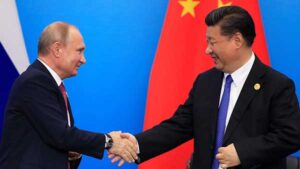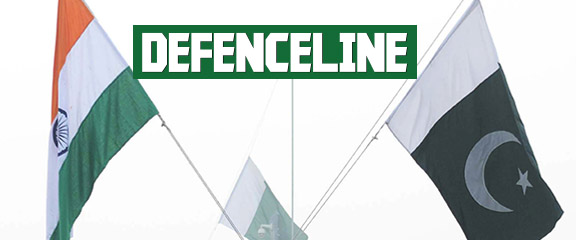Even an extra note and it isn’t that symphony where two persons mesmerise their audience with a duet of a different kind. The two have to be in perfect harmony emotionally as well as physically to be able to create something worthwhile — like a world famous tango which can infuse the same kind of enthusiasm normally experienced when people in the Punjab listen to bhangra drumbeats. Or when they witness the Snake Dance; two male cobras confronting each other, dangerous, but a spectacle no less enthralling because of it. So what’s common between all these? Or why even mention them in the same breath? The first few an expression of what is quintessentially beautiful, while the last a battle that could end in death!
It took me a while to wrap my head around the inherent commonality between them; the intensity and focus of the participants, the fact that by their very nature they must be entwined with each other, and the inherent danger in that embrace. Remind you of another relationship? Pakistan and India for example? Can theirs ever be a tango — or is it forever doomed to be the Snake Dance of Death?

Peace in the region, is hostage to many factors, but chiefly due to the ever-present hostilities between Pakistan and India. And these are sometimes out in the open, other times festering beneath the thin veneer of what goes for peace. That more than one fifth of the world’s population that constitutes the subcontinent deserves peace, needs it badly, is a given. That wars create more problems than they solve is also a no-brainer. After all, if Europe can move beyond the devastation caused by two Great Wars, a major Cold War, and some other conflicts, and yet learn to co-exist for the benefit of their people, why can’t we? Why are we stuck in geo-strategy that plays out as a state of perpetual hostility? Why can’t we think and work for geoeconomics? And what’s the difference between the two? Beginners like me equate the former with confrontation and are at a loss to understand or explain the latter. Does it mean cooperation aimed at economic development? The genuineness or nobility of the concept isn’t even debatable, but where do we see this at work, especially between two unequal economies? And while we are at it, what’s this geo strategy all about? Stripped of semantics, one finds economy pivotal to both, power and influence, to achieve superior economic strength or superior economic power to be able to call the shots. Sounds primitive but a fact of basic human nature; competition, therefore confrontation.
This “truism” about peace and prosperity in the First World has rarely been challenged, never mind that Serbs were allowed to actualise their covenant; forcibly convert, force out, or simply eliminate Muslims from their part of the world. It took the massacre of thousands of Muslims and the rape of an equal number of women of all ages till the “worlds’ conscious” finally woke up to put a stop to all these “inhumane” activities. But not before the purpose had been achieved. Look closely also at Africa, a major part of the Middle East, Afghanistan and even the subcontinent. Isn’t it a fact that pillaging Africa of its precious resources at the cost of endless human lives continues even now? How come Holland and Belgium are the major centres of the diamond industry without possessing even a single stone? Meanwhile France has become the main beneficiary of bloodshed in the Central African Republic. Why did it force out a legitimately elected government in Algeria to bring in at the helm people of its own choice — and that too after French Legionnaires had murdered over five million Algerians to “teach them” human rights. Libya, Syria, Iraq and Afghanistan are recent examples of this continued brutalisation of humanity. Who is behind all these wars and why? Why is it that the Snake Dance between the Free World and Communism didn’t take place in Europe where the two remained eyeball to eyeball for more than three decades? And why were they fighting each other anyway? For space, resources, more power. Having forsaken desire for more territory, the truth is that the rest is theirs anyway!
It doesn’t take rocket science to conclude that the champions of democracy and human rights have successfully exported wars beyond their shores. Asia and Africa are the battlegrounds where they decide the division of precious resources and the ascendency of what they call the “free and progressive democratic world, “with the free market economy thrown in for good measure. Their military industrial complex thrives on the blood of millions of unsuspecting humans. It is no secret that the Free World needs wars on a regular basis to sell and use their arsenals of old weapons, and in the process, try out and perfect new ones in live battles against hapless Asians, Arabs and Africans. Meanwhile, there’s peace of sorts in the Western Hemisphere. It doesn’t matter to them whether its American Indians, Aborigines or poor third world countries at the receiving end of the games they play, so long as their lifestyles aren’t affected.
The Soviet Union might have disintegrated as a consequence of the power struggle between democracy and Communism, but Russia wasn’t going to be a write-off ever, not with its geography being what it is and not with its natural resources. History, my dear Watson, as Sherlock Homes would have put, demonstrates that it was only a matter of time before the wily Russians would re-enter the fray. Having developed sustainable economic ties with China, it gave a taste of things to come in Crimea and Syria; the Bear was back in the game, and this time with China on its side.
Patience as a virtue has been on display in the Land of the Dragon for the last six decades. It shows in the way OBOR was unveiled by China in 2015. No one was fooled when it was dubbed as an overarching economic concept by the USA. It was recognised for what it would mean if allowed to reach fruition — a very attractive concept evoking a positive response wherever it has reached so far. Therefore, it has to be undone totally if possible, or weakened to an extent that it stops challenging western hegemony. Ex US Secretary of State, Rex Tillerson put it succinctly when he said that their “way of life” is superior to what China has to offer. While China’s OBOR is understood universally, Americans seem to be evolving their own Democratic Belt and Road Initiative (DBRI), aimed at linking allies and friend economically as well as militarily. The dance is on yet again, another Snake Dance of Death, with Asia and Africa being the dance floor, for democracy, peace and prosperity, they keep emphasising. We believe them, of course.
As the dance pattern of the two main contestants, OBOR and DBRI is unveiled through their opening moves, one begins to suspect that the Pacific, Indian and to an extent the Mediterranean Oceans and their rimlands including the Middle East, the subcontinent and the Far East vectored around China are their main focus for the foreseeable future. It doesn’t make one any happier to realise that the subcontinent because of its geography seems to have a fatal attraction for both, and that both have been working to gain the upper hand in this region for obvious reasons. Additionally, different nations are gravitating towards either of the two lead dancers according to their own special interests and compulsions. Given this overall backdrop, these bit players are busy in little games of their own, mostly in tune with their acknowledged leaders, at times out of sync as well.
Do we believe that India’s August 5, 2019 Kashmir adventure wasn’t a sanctioned move? Naiveté would have a face if the answer is in the affirmative. And is it only to share its burden that compels the US to keep India on the main table when peace in Afghanistan is being discussed? Do we believe that the US will ever voluntarily leave this country and give up on its designs in the region? In that case, it might as well hand over the world to the Russo-China Combine on a plate. Whether it is LEMOA leading up to BECA, QUAD or other such moves, geoeconomics aren’t their purpose, the geo strategic outreach of OBOR however, definitely qualifies as one. Its flagship, CPEC will naturally be in focus as well. Therefore, it is not a coincidence that Pakistan finds itself squeezed on almost all fronts, with the economy way up on that list.
Seeking peace within, as much as beyond, to get out of this nutcracker would be the sanest and logical way to proceed, the tango and not the Snake Dance of Death should be our choice. This was the message one got after listening to and reading about the recently concluded National Security Conference in Islamabad, the first of its kind, paving the way for a meaningful debate in Pakistan, in fact in the region. Breaking away from the past for the well-being of the region and its teeming billions is definitely a very noble desire. All marks for those who thought of it, enriched us with their thoughts and set the ball rolling for others to join if they wanted to play. It should have been a good beginning.
Unfortunately, or should I say fortunately, this is where it must stop. Call me hawkish, subjective, cynical and whatever else comes to your mind, but pray do enlighten me as to how can there be a tango with only one dancer? How will we get India to become a receptive to dialogue India again, to renege on its Kashmir move, to give up its ambitions within and beyond the region? Notwithstanding our genuinely noble intentions, is anyone else even remotely interested in playing honest broker and helping us find a way out of this logjam? Don’t tell me that Uncle Sam or any of his disciples have volunteered to help. What have the results of such efforts been in the past? And last, but not least, can we tango within an overall environment of the Snake Dance? Can we not be a part of OBOR or DBRI? Answer that and you will know whether we can tango or not.
Our history we did in the past — not something to be very proud of if one were to be honest. What we are doing now will be history for our future generations.

The writer is a prominent defence analyst. During his long military career, he served in a number of command positions.




Proud of you buddy. Incisive.